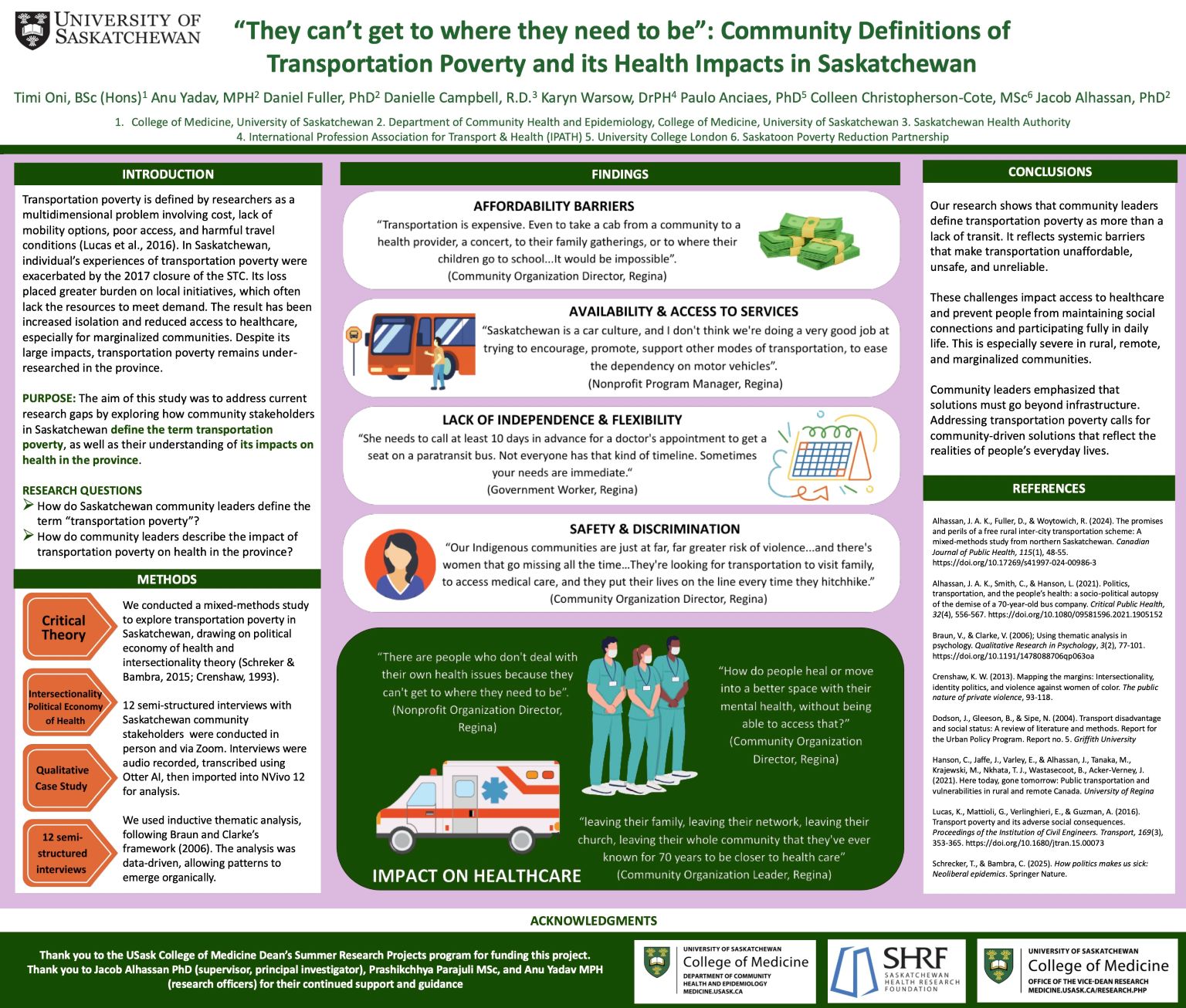
"They can’t get to where they need to be": Community Definitions of Transportation Poverty and its Health Impacts in Saskatchewan
Timi Oni
Transportation poverty refers to the challenges individuals face when poor access, high costs, and unsafe conditions restrict their ability to participate in daily life. To better understand the concept within the Saskatchewan context, this study explored how community stakeholders define transportation poverty and its impacts on health in the province. We interviewed 12 nonprofit leaders and government workers across Saskatchewan, and inductive analysis identified transportation poverty as a set of interconnected barriers that shape both opportunity and wellbeing. Stakeholders emphasized how lack of affordability, limited transit services, and inadequate alternatives such as walking or cycling restrict participation in work, education, and community. Dependence on unreliable systems reduces independence and autonomy, while safety concerns and discrimination further marginalize Indigenous communities, women, seniors, and people with disabilities. Together, these barriers shape health outcomes by limiting access to routine and specialized services, discouraging preventative care, and compounding mental health challenges through isolation. Community stakeholders ultimately framed transportation poverty as a structural barrier that makes mobility unaffordable, unreliable, and unsafe. Addressing it requires long-term strategies that include transportation within broader health, equity, and infrastructure planning.
